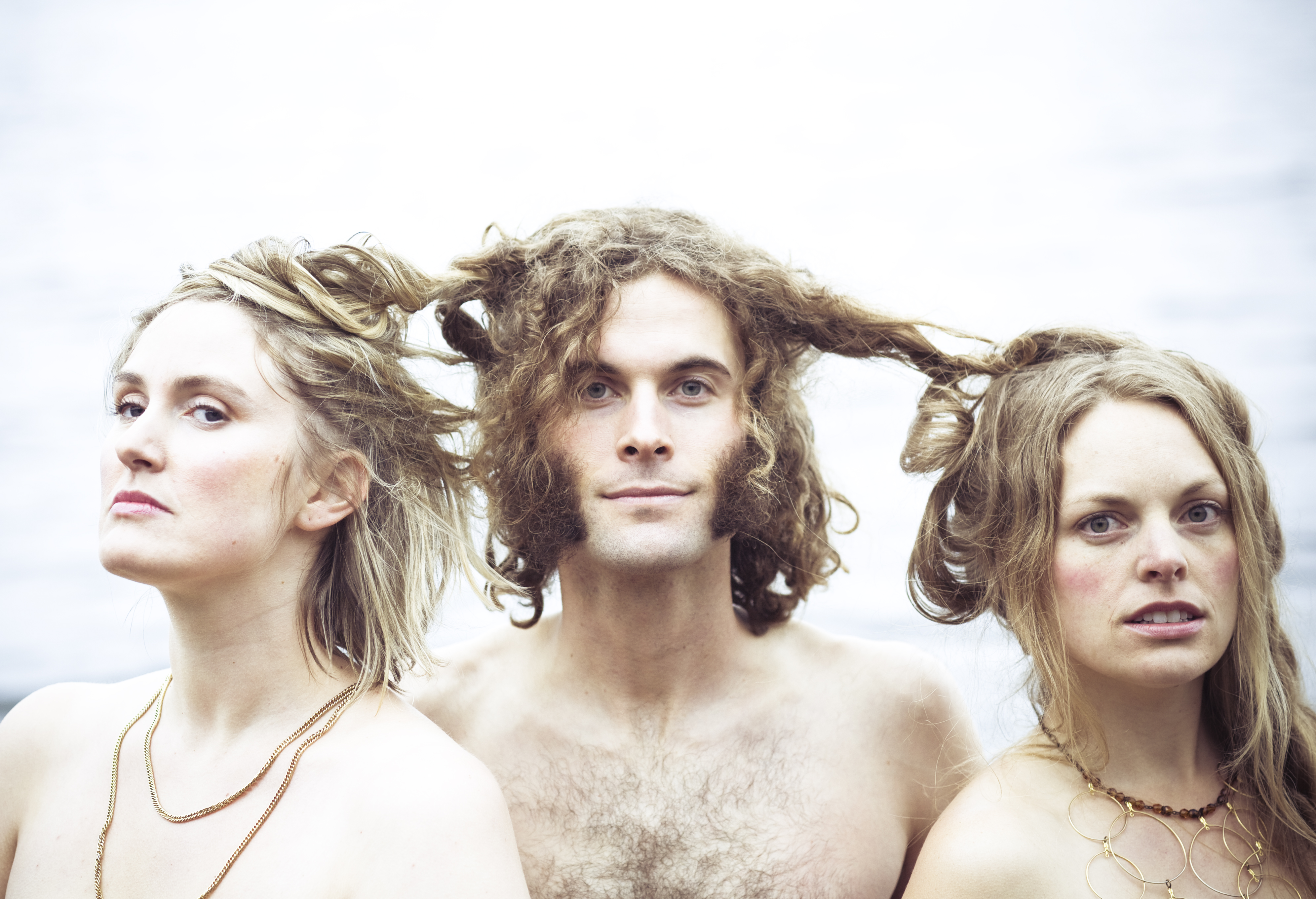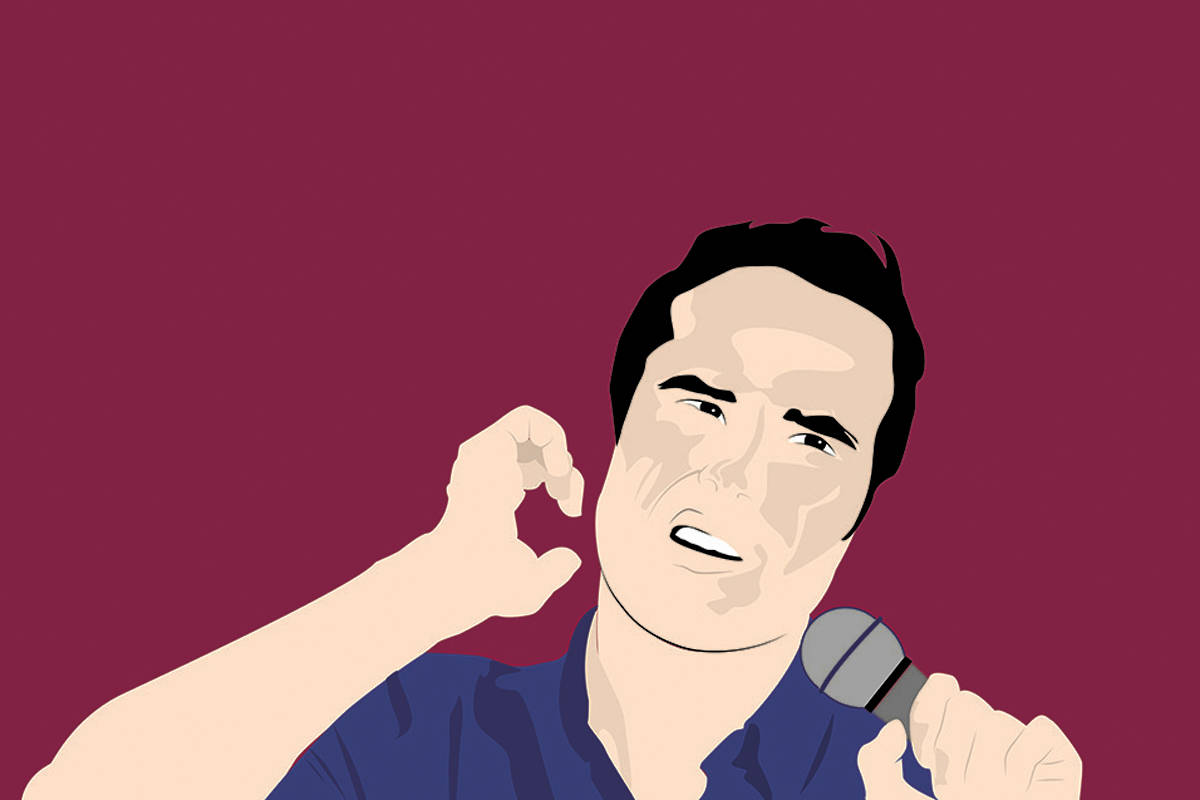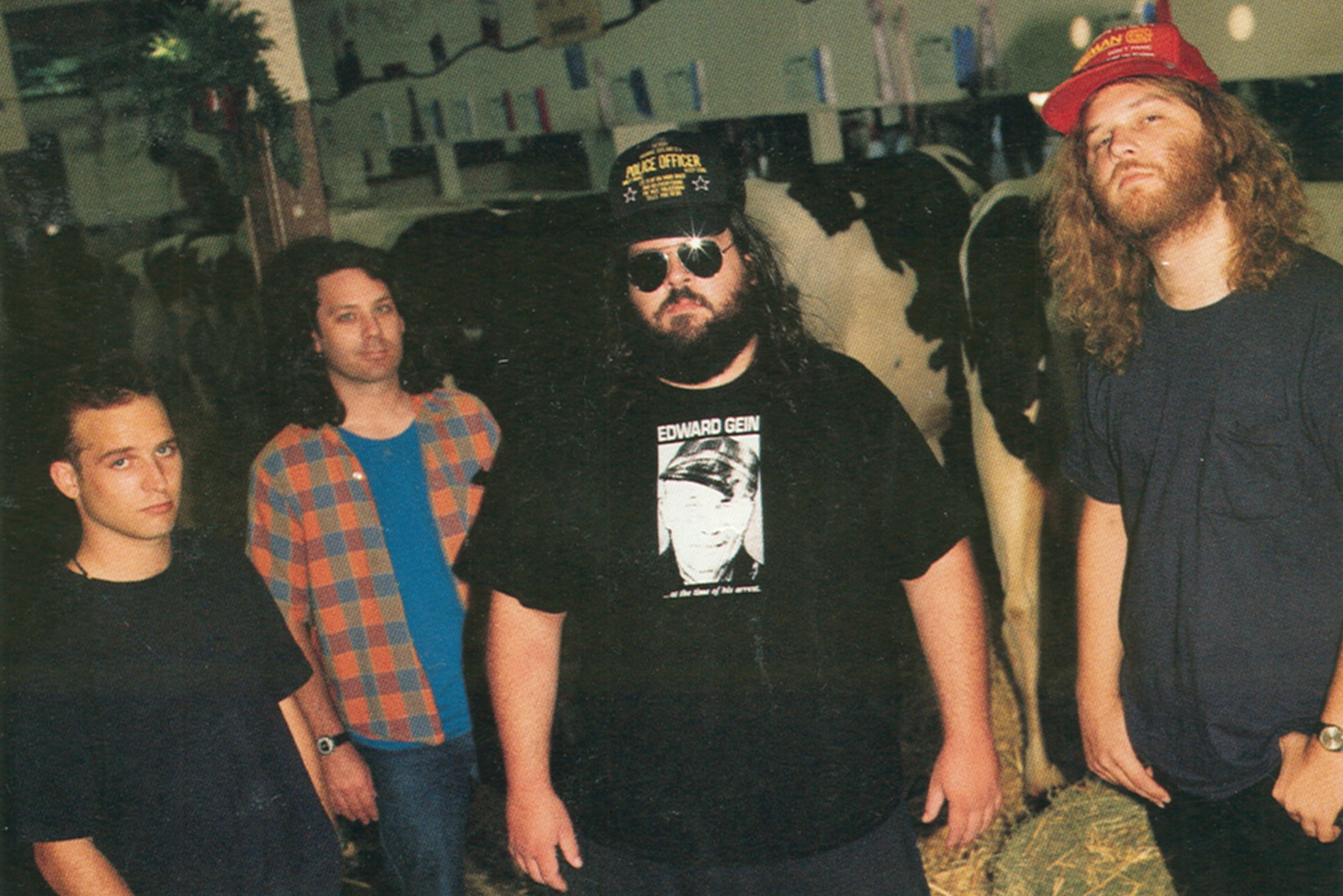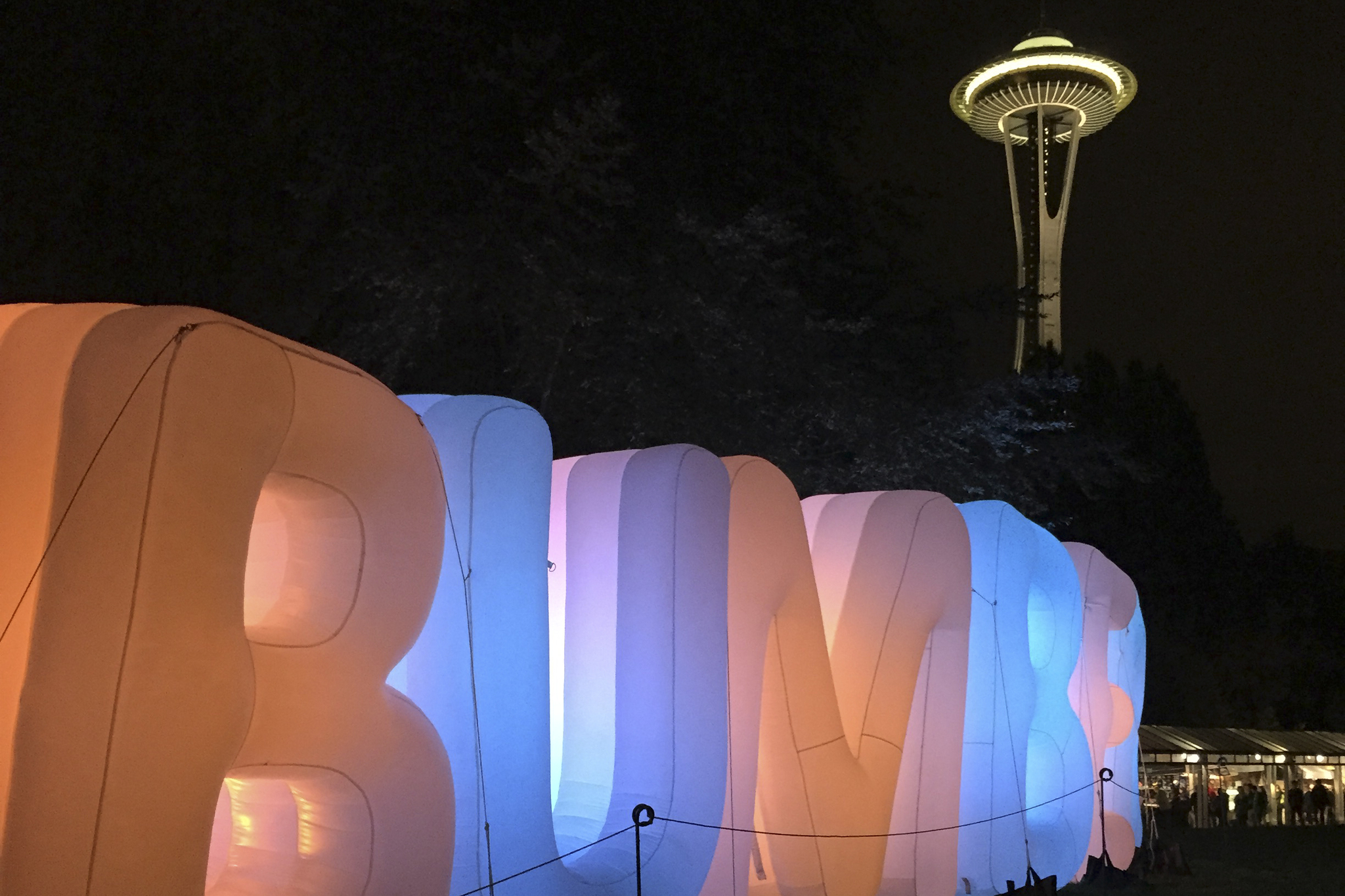Hannalee’s Mike Notter is one of Seattle’s hardest working musicians. In addition to his work with the popular folk trio, which includes his wife Anna-Lisa and long-time friend Fidelia Rowe, he’s a member of Motopony and SHIM, two well-respected–and equally hard-working–local bands, not to mention his frequent performances with the Seattle Rock Orchestra. Notter also possesses sideburns that would give Neil Young’s 1970’s pair a run for their money. Hannalee’s latest release, Fragaria, is the fourth EP in a series based on the seasons and it’s out July 7th, the same day the band plays the Triple Door with Damien Jurado. We caught up with Notter to talk about the band, their EP series, and just exactly how he’s able to juggle so many different projects.
Fragaria
is the fourth EP you’ve put out in just a few months, with each one framed around one of the four seasons. Can you talk about the genesis of this idea? About a year and a half ago I was in the middle of some really heavy touring with Motopony. We were coming off the road and we were going to work on our second record so I knew I was going to have some time on my hands. Hannalee had always been sort of a passion project of mine, a side thing with my wife. We met seven or eight years ago and never wanted to play music together because we were worried that if it didn’t sound good it might be hard on the relationship. So we never did until we decided to get married. We figured there was no going back. And it worked well, or we liked it at least, so we kept doing it and added a third member, an old friend of Anna-Lisa’s, Fidelia, who is a great singer. We had this little band and we’d been playing shows around town just for fun but we’d never recorded anything. Over the course of three years, we stockpiled two full-lengths, or as it were, four EPs worth of material. It just hadn’t been recorded. As Motopony was coming off the road, we decided we wanted to get all the material on tape.
And what about the idea to do a series of EPs based on the seasons as opposed to a proper album or albums? We had roughly 25 songs to record and we figured this would be a great way to continuously keep our audience engaged as we were making, recording, and releasing music. Instead of recording a collection of songs and then releasing it and being done for a year or two, we were going to be able to be recording constantly over the course of a year, releasing things every three months and giving people that liked our music a way to remain engaged with us. For this somewhat earthy folk band, it just felt fitting to apply the seasonal theme to this music that was going to be coming out every three months anyway. We didn’t write records based on each season. It was more a matter of selecting songs that fit with each theme. We were trying to corral the songs that reflected what it feels like to be living through autumn in Seattle. It’s a little bit more of an abstract concept than a direct one.
Can you speak about the different EP titles and how each one ties into a season? The EP titles are all genuses of seasonal crops that correspond to the season. We’re not biologists so that’s just sort of our best effort. We wanted something that makes sense that had a cool ring to it.
So what’s winter, for example? Winter was Brassica, which I think is “winter greens.” Cucurbita is the fall, which is pumpkin, which is loosely associated with autumn. Spring was Morchella which is a morel mushroom. Summer is Fragaria, which is strawberries. It’s been a long year for us. We’ve been working really hard and the summer record is the last one on the list and we we’re really excited about doing it quickly and letting it loose. A lot of that was tracked live where the other ones weren’t so it does have a very loose, live feel to it, very easy-going and quite a bit sexier than the others, which was somewhat intentional with summertime—late nights and warm weather. It’s relaxed and its sexy and its fun as opposed to the fall record which is a bit more somber and has these themes of longing and change.
Do you anticipate that you’ll do a CD of all of them combined? We may do a box set. It’s just our own little homemade project. All the CD jackets are screen-printed and they’re all really homespun so it’s wide open for us to do something like a box set. We have a woodworking friend who’s been playing with these wood veneer packages, whether it’s for vinyl or CDs, so we may come up with a creative package and put all four seasons into something a do a show for it in the fall.
How do you prioritize one band over the other? It’s been hard. It’s just like any venture, you only have so much time. At the moment, the two main projects I’ve been working on have been Hannalee and Motopony. One of the key Motopony members, Buddy Ross, left the band to join Frank Ocean’s band. That really put a lull in the Motopony schedule, which is a bummer in a certain way, but it allowed me a whole lot of free time to throw at Hannalee so it actually worked out well logistically.
You guys seem to be fairly choosy with the shows you play, not taking too many gigs and often selling them out. What’s your philosophy about playing live? I’ve been in bands for a long time. The rock band SHIM was my first real band. We’ve been playing for years and years so you begin to learn these lessons, which are pretty common sense. If you overwhelm your audience with performances, even if they love your band, they don’t want to come see you every week. I don’t want to see The Rolling Stones every week. You definitely learn to be selective about when and where you play. Each show that we’ve done for these releases we’ve really tried to make unique and appealing. The first one we did at St. Mark’s Cathedral with Noah Gunderson, which really went well. It’s such a special room and it fit that somber, contemplative autumn theme well. The winter show we rented out an urban grange in Ballard called the Sunset Hill Clubhouse. We had this cozy wintertime record and we had all our friends bring soups and crock pots and did a feed in the basement of the grange and had a keg of my favorite porter. It was a fully homegrown show. We basically took a living room environment and expanded it to this grange that had a higher capacity and it felt great. The spring show we did at the Fremont Abbey. And all the shows have been done with friends and whose music we really appreciate. This last one at the Triple Door with Damien Jurado is right in that vein. It’s a good venue. The people coming to hear us will be comfortable. We’ve tried to make it worth people’s time to pay attention to what we’re doing this year.
You’ve done some work with the Seattle Rock Orchestra, appearing in their Beatles and Smashing Pumpkins shows amongst others. How did you find that experience? We love the Seattle Rock Orchestra. We met [orchestra director] Scott Teske at the Fremont Abbey years ago and then we came across him doing a real interesting solo performance at the UW Street Fair where he was looping his upright bass through all these pedals. So we kept in contact and he knew that we were a harmony band so when he had a need for that in the rock orchestra he called. The first one we did with them was a Christmas show at the Fremont Abbey but it made sense and we kept doing it. It’s such a unique thing and there’s no other band in Seattle like that, a symphonic group with good players who have some chops and who are willing to show up–I don’t know if they’re getting paid now–but everyone shows up and drinks beer at rehearsal. I’ve been in wind ensembles and symphonies when I was growing up and it’s such a different vibe from that. It’s like what you always wished it was like. And then they select records that you’ve never heard in a symphonic arrangement and that you are kind of interested in hearing. We love being a part of it. It’s also a really crazy experience singing those songs in front of a 40-piece orchestra. I got to sing with them at the Neptune earlier this year. They did Smashing Pumpkins and that’s the band that got me into rock ‘n’ roll so to be able to sing “Tonight, Tonight” with an orchestra, I was pretty elated. I’m really thankful to Scott for including us in what they do.








